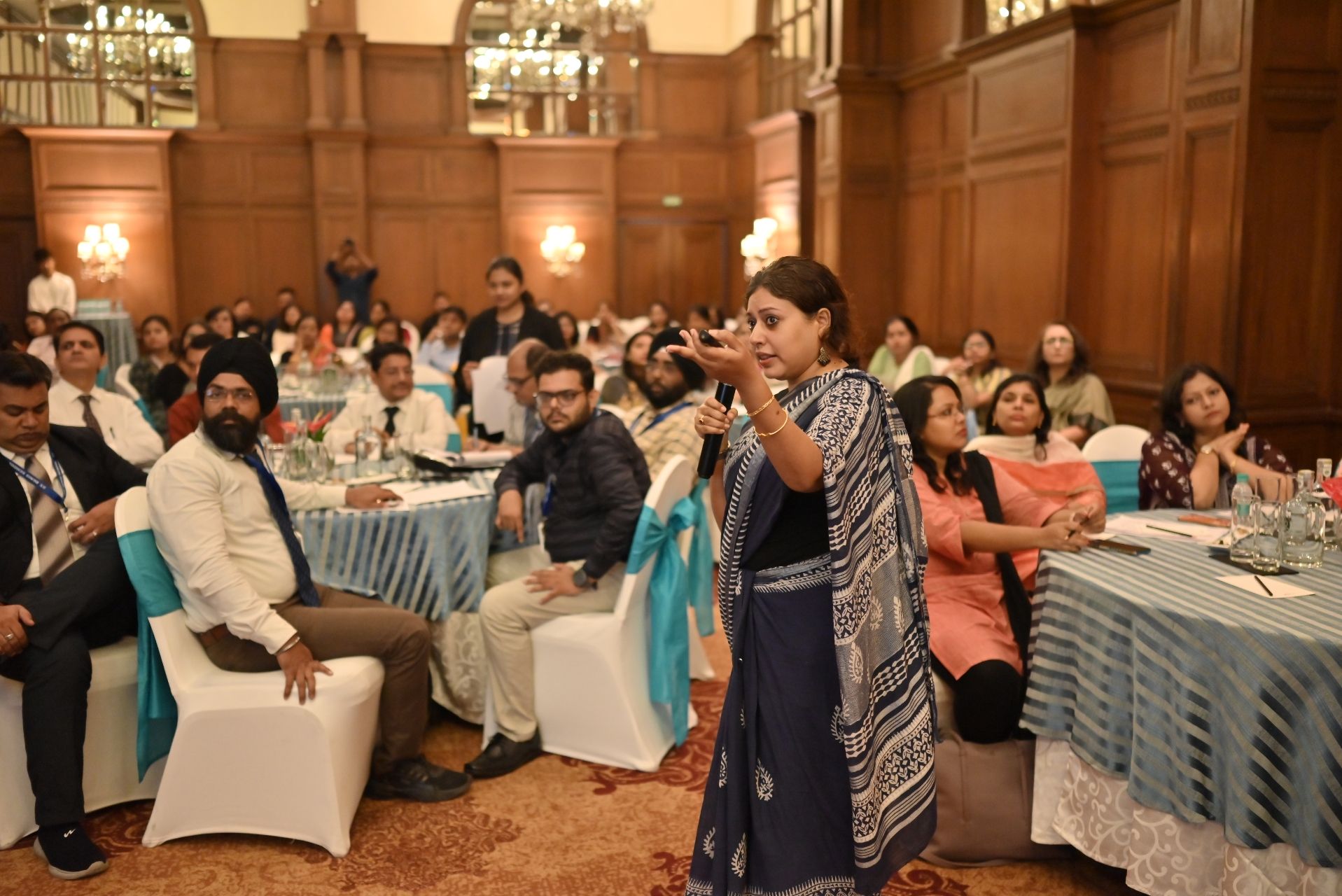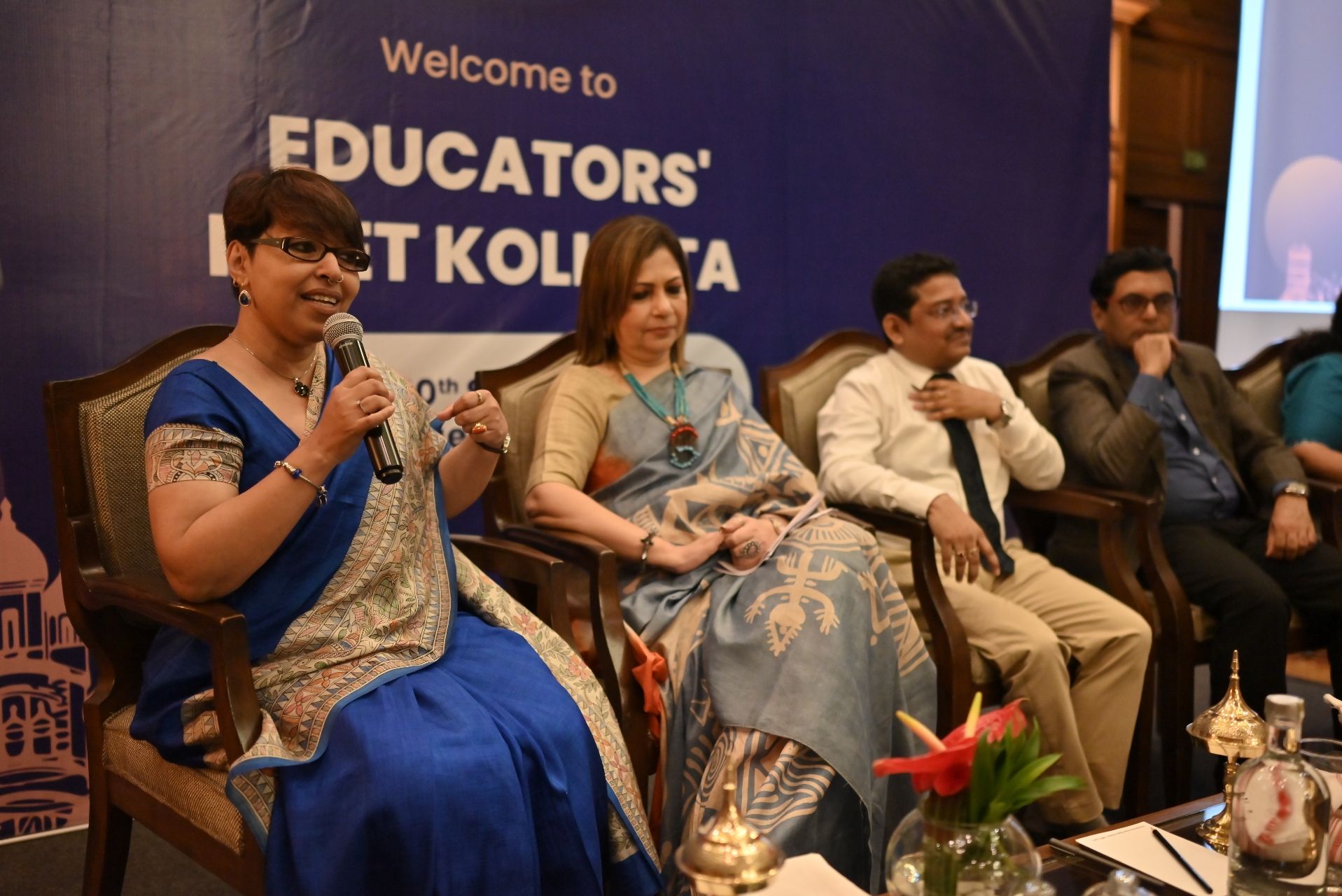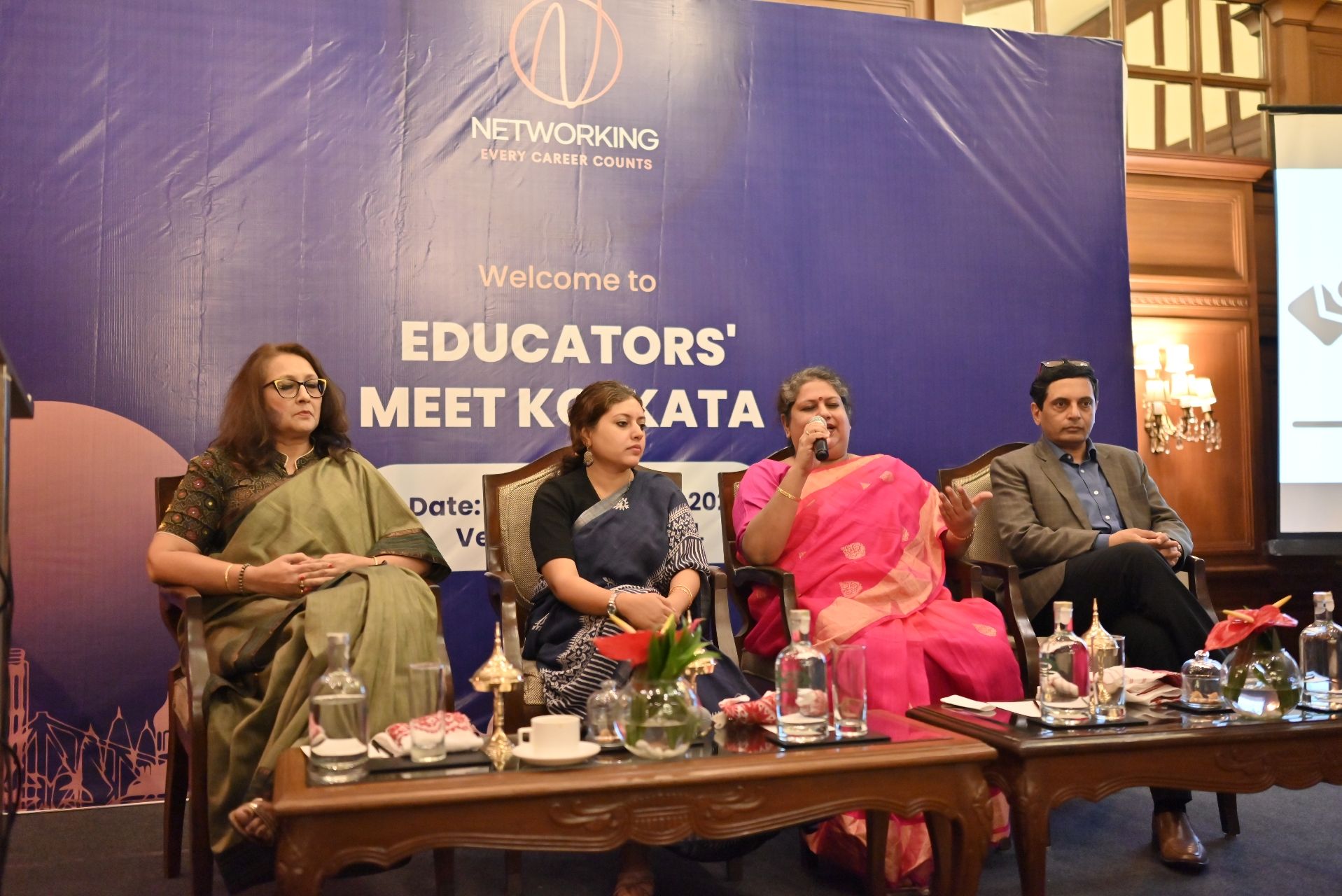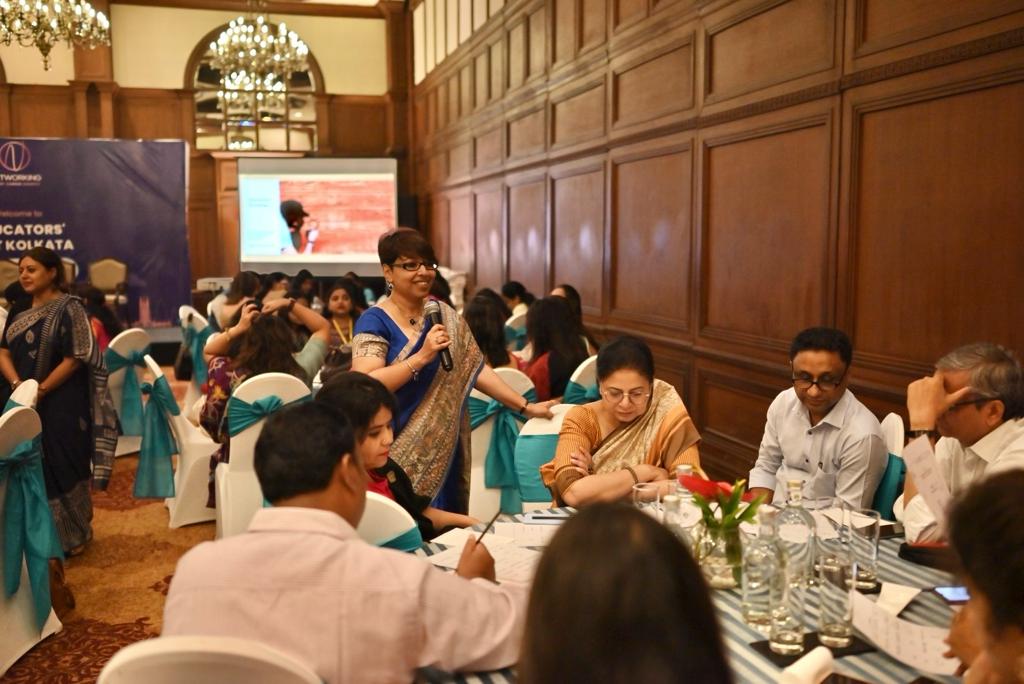SRMAP Departmental Events
- PhD in Psychology: The Quest for Understanding Human Psyche July 8, 2024

As you navigate through subjects like Biological Psychology, Social Psychology, and Cognitive Psychology, you’ll gain profound insights into the intricacies of the human psyche. But the allure of a BSc in Psychology extends far beyond the classroom.
With the demand for clinical and counselling psychologists projected to surge by 11% by 2032, this degree opens doors to a multitude of fulfilling career pathways. Whether you aspire to guide individuals through life’s challenges as a clinical psychologist or provide empathetic support as a counselling psychologist, the opportunities are boundless.
You can join this extraordinary academic odyssey, where you’ll not only expand your intellectual horizons with BSc Psychology subjects but also embark on a rewarding journey of personal and professional growth.
BSc Psychology Subjects Lists
Here’s a list of common subjects typically included in a BSc Psychology programme:
Introduction to Psychology
Biological Psychology
Cognitive Psychology
Developmental Psychology
Social Psychology
Abnormal Psychology
Personality Psychology
Statistics for Psychology
Research Methods in Psychology
Psychological Testing and Assessment
Clinical Psychology
Counselling Psychology
Industrial-Organisational Psychology
Health Psychology
Forensic Psychology
Cross-Cultural Psychology
Neuropsychology
Educational Psychology
Positive Psychology
Environmental Psychology
Keep in mind that the specific subjects offered may vary depending on the university and the curriculum structure of the BSc Psychology programme.
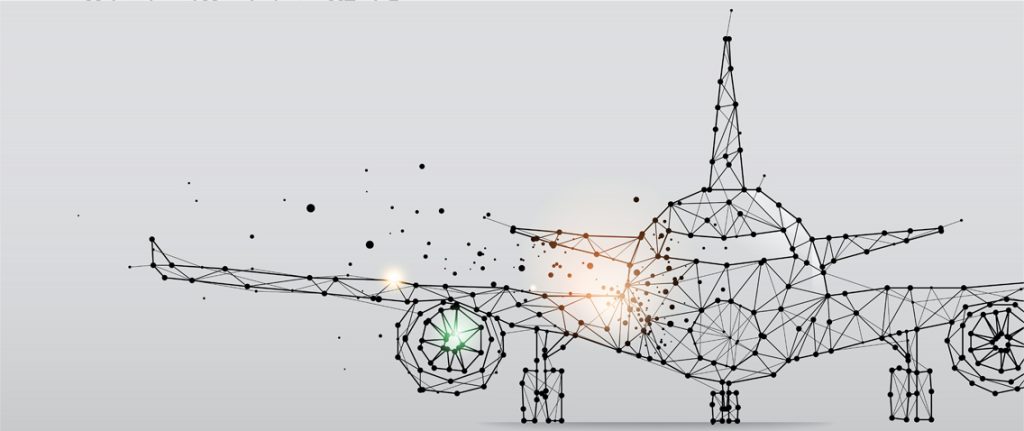
BSc Psychology Syllabus
Given below is the year-wise subject and syllabus of BSc Psychology:
Graduates with a Materials and Manufacturing MTech degree can access rewarding and well-paying positions in areas such as,
-
- Aerospace engineering
- Automotive engineering
- Biomedical engineering
– that require expertise in materials and manufacturing technology.
The practical knowledge gained from Materials and Manufacturing MTech studies can help develop new materials for use in production pipelines or create innovative manufacturing processes that streamline production times whilst improving quality control, making the Materials and Manufacturing MTech degree beneficial to the individual graduate and employers alike.
- Surplus Opportunities to Work on Research Projects
Pursuing an MTech degree provides opportunities to work on research projects, which can create networking opportunities and help you hone your skills.
For example, Thermal MTech students get to explore the fascinating field of Thermal engineering, such as Thermal design and Thermal analysis.
They also get to work on projects related to,
-
- Thermal energy management
- Thermal systems design
- Thermal control systems.
- The Bright Side of Thermal Engineering
Working on research projects in Thermal engineering can also give students an edge in the industry as it enhances their understanding of Thermal principles and technologies.
Valuable industry experience and essential connections in the Thermal engineering field through their research work.
All these advantages make pursuing an MTech degree worthwhile for those interested in Thermal engineering.
MTech provides invaluable insight into the latest breakthroughs and technologies in your field, helping you stay ahead of the curve.
Studying for an MTech can provide immense advantages for those in the technological field, particularly IoT technologies. Not only does it offer the opportunity to gain higher qualifications and broaden skills, but it can also provide invaluable insight into the latest IoT breakthroughs and technologies, helping students stay ahead of the curve.
- The Perks of an MTech in VLSI
An MTech in VLSI will allow you to develop advanced knowledge and skills, making a VLSI engineer highly sought after in many industries. As a VLSI engineer, you can work with hardware design, device fabrication, circuit design and debugging, amongst other skills, which will give you a competitive edge over other job applicants.
- Possibilities of the Internet of Things (IoT)

IoT (Internet of Things) related coursework provides students with comprehensive technical and practical insight into IoT systems development. Technical topics like IoT architecture, IoT standards and IoT security are taught in detail, enabling those who complete the program to gain specialised knowledge in the IoT domain.
Furthermore, the programme also typically offers a research-based thesis which enables students to apply their IOT skills to real-world problems. In this way, MTech programmes provide an excellent opportunity for students to understand IoT systems and technologies deeply.
What to Expect From an MTech Degree?
-
- Opportunity to develop their professional skills through hands-on projects and internships
- Opportunity to become experts in Data Science and its associated technologies.
- Data Science is a rapidly evolving field, and an MTech will provide the guidance needed to stay current and be at the forefront of Data Science development.
- Provides students with the ability to gain a deeper understanding of Data Science and its applications, which can help them get better jobs or progress their careers.
Where Will You Be After graduation?
Upon graduation, MTech graduates are highly sought after in the job market, with many top companies offering competitive salaries for those with an MTech degree.
Furthermore, an MTech degree is a tremendous advantage as Thermal graduates are highly sought after in the job market.
Thermal graduates have specialised knowledge, making them more attractive to companies and often offered competitive salaries.
An MTech degree provides Thermal graduates with unique skills and qualifications that make them stand out in the job market and ensure they have a competitive advantage over other applicants.
Making the Most of Your MTech Degree; Yes That’s What Makes the difference!
With an MTech degree, you can pursue a plethora of career options.
What are the Most Coveted Career Options After MTech?
-
-
- Engineering
- Research and development
- Data science
- Materials and Manufacturing
-
- The Scope of Materials and Manufacturing
Materials and Manufacturing are two areas often explored in an MTech course.
-
-
- Provide you with knowledge of materials used in industries and hands-on experience working with them.
- Access to other related fields, such as chemical engineering and robotics.
- Enable you to develop expertise in manufacturing processes, including production planning, cost control and product design.
- On completing the degree, you can embark on a career as a Materials and Manufacturing Engineer with high growth prospects.
- Exclusive job opportunities in the government sector.
-
- The Future of MTech in VLSI
MTech in VLSI empowers students to get VLSI-related roles in the government and even industries like Aerospace, Medical electronics, Automotive industry, etc.
VLSI has become a popular technology due to its versatility in processing large amounts of data without lags. With the proper knowledge and specialised skillset gained through the course, you will be able to face the challenges of a competitive job market more confidently.
What is Stopping You From Grabbing That MTech Degree!
Pursuing an MTech degree can be a rewarding experience. It is an opportunity to gain the skills and knowledge needed to pursue specialised careers in your field of study.
With a vast range of opportunities that come with gaining an MTech degree, it is worth considering if you’re looking for specialised training and education.
With hard work and dedication, you can find great success in your chosen career after completing your MTech degree!
You are just a click away from pursuing your dream MTech Degree!
Continue reading → -
- Navigating BSc Psychology Subjects: Essential Insights for Aspiring Psychologists May 11, 2024

As you navigate through subjects like Biological Psychology, Social Psychology, and Cognitive Psychology, you’ll gain profound insights into the intricacies of the human psyche. But the allure of a BSc in Psychology extends far beyond the classroom.
With the demand for clinical and counselling psychologists projected to surge by 11% by 2032, this degree opens doors to a multitude of fulfilling career pathways. Whether you aspire to guide individuals through life’s challenges as a clinical psychologist or provide empathetic support as a counselling psychologist, the opportunities are boundless.
You can join this extraordinary academic odyssey, where you’ll not only expand your intellectual horizons with BSc Psychology subjects but also embark on a rewarding journey of personal and professional growth.
BSc Psychology Subjects Lists
Here’s a list of common subjects typically included in a BSc Psychology programme:
Introduction to Psychology
Biological Psychology
Cognitive Psychology
Developmental Psychology
Social Psychology
Abnormal Psychology
Personality Psychology
Statistics for Psychology
Research Methods in Psychology
Psychological Testing and Assessment
Clinical Psychology
Counselling Psychology
Industrial-Organisational Psychology
Health Psychology
Forensic Psychology
Cross-Cultural Psychology
Neuropsychology
Educational Psychology
Positive Psychology
Environmental Psychology
Keep in mind that the specific subjects offered may vary depending on the university and the curriculum structure of the BSc Psychology programme.

BSc Psychology Syllabus
Given below is the year-wise subject and syllabus of BSc Psychology:
Graduates with a Materials and Manufacturing MTech degree can access rewarding and well-paying positions in areas such as,
-
- Aerospace engineering
- Automotive engineering
- Biomedical engineering
– that require expertise in materials and manufacturing technology.
The practical knowledge gained from Materials and Manufacturing MTech studies can help develop new materials for use in production pipelines or create innovative manufacturing processes that streamline production times whilst improving quality control, making the Materials and Manufacturing MTech degree beneficial to the individual graduate and employers alike.
- Surplus Opportunities to Work on Research Projects
Pursuing an MTech degree provides opportunities to work on research projects, which can create networking opportunities and help you hone your skills.
For example, Thermal MTech students get to explore the fascinating field of Thermal engineering, such as Thermal design and Thermal analysis.
They also get to work on projects related to,
-
- Thermal energy management
- Thermal systems design
- Thermal control systems.
- The Bright Side of Thermal Engineering
Working on research projects in Thermal engineering can also give students an edge in the industry as it enhances their understanding of Thermal principles and technologies.
Valuable industry experience and essential connections in the Thermal engineering field through their research work.
All these advantages make pursuing an MTech degree worthwhile for those interested in Thermal engineering.
MTech provides invaluable insight into the latest breakthroughs and technologies in your field, helping you stay ahead of the curve.
Studying for an MTech can provide immense advantages for those in the technological field, particularly IoT technologies. Not only does it offer the opportunity to gain higher qualifications and broaden skills, but it can also provide invaluable insight into the latest IoT breakthroughs and technologies, helping students stay ahead of the curve.
- The Perks of an MTech in VLSI
An MTech in VLSI will allow you to develop advanced knowledge and skills, making a VLSI engineer highly sought after in many industries. As a VLSI engineer, you can work with hardware design, device fabrication, circuit design and debugging, amongst other skills, which will give you a competitive edge over other job applicants.
- Possibilities of the Internet of Things (IoT)

IoT (Internet of Things) related coursework provides students with comprehensive technical and practical insight into IoT systems development. Technical topics like IoT architecture, IoT standards and IoT security are taught in detail, enabling those who complete the program to gain specialised knowledge in the IoT domain.
Furthermore, the programme also typically offers a research-based thesis which enables students to apply their IOT skills to real-world problems. In this way, MTech programmes provide an excellent opportunity for students to understand IoT systems and technologies deeply.
What to Expect From an MTech Degree?
-
- Opportunity to develop their professional skills through hands-on projects and internships
- Opportunity to become experts in Data Science and its associated technologies.
- Data Science is a rapidly evolving field, and an MTech will provide the guidance needed to stay current and be at the forefront of Data Science development.
- Provides students with the ability to gain a deeper understanding of Data Science and its applications, which can help them get better jobs or progress their careers.
Where Will You Be After graduation?
Upon graduation, MTech graduates are highly sought after in the job market, with many top companies offering competitive salaries for those with an MTech degree.
Furthermore, an MTech degree is a tremendous advantage as Thermal graduates are highly sought after in the job market.
Thermal graduates have specialised knowledge, making them more attractive to companies and often offered competitive salaries.
An MTech degree provides Thermal graduates with unique skills and qualifications that make them stand out in the job market and ensure they have a competitive advantage over other applicants.
Making the Most of Your MTech Degree; Yes That’s What Makes the difference!
With an MTech degree, you can pursue a plethora of career options.
What are the Most Coveted Career Options After MTech?
-
-
- Engineering
- Research and development
- Data science
- Materials and Manufacturing
-
- The Scope of Materials and Manufacturing
Materials and Manufacturing are two areas often explored in an MTech course.
-
-
- Provide you with knowledge of materials used in industries and hands-on experience working with them.
- Access to other related fields, such as chemical engineering and robotics.
- Enable you to develop expertise in manufacturing processes, including production planning, cost control and product design.
- On completing the degree, you can embark on a career as a Materials and Manufacturing Engineer with high growth prospects.
- Exclusive job opportunities in the government sector.
-
- The Future of MTech in VLSI
MTech in VLSI empowers students to get VLSI-related roles in the government and even industries like Aerospace, Medical electronics, Automotive industry, etc.
VLSI has become a popular technology due to its versatility in processing large amounts of data without lags. With the proper knowledge and specialised skillset gained through the course, you will be able to face the challenges of a competitive job market more confidently.
What is Stopping You From Grabbing That MTech Degree!
Pursuing an MTech degree can be a rewarding experience. It is an opportunity to gain the skills and knowledge needed to pursue specialised careers in your field of study.
With a vast range of opportunities that come with gaining an MTech degree, it is worth considering if you’re looking for specialised training and education.
With hard work and dedication, you can find great success in your chosen career after completing your MTech degree!
You are just a click away from pursuing your dream MTech Degree!
Continue reading → -
- Exploring Railway Bridges and Track Structure: Insights from Industry Professionals April 16, 2024
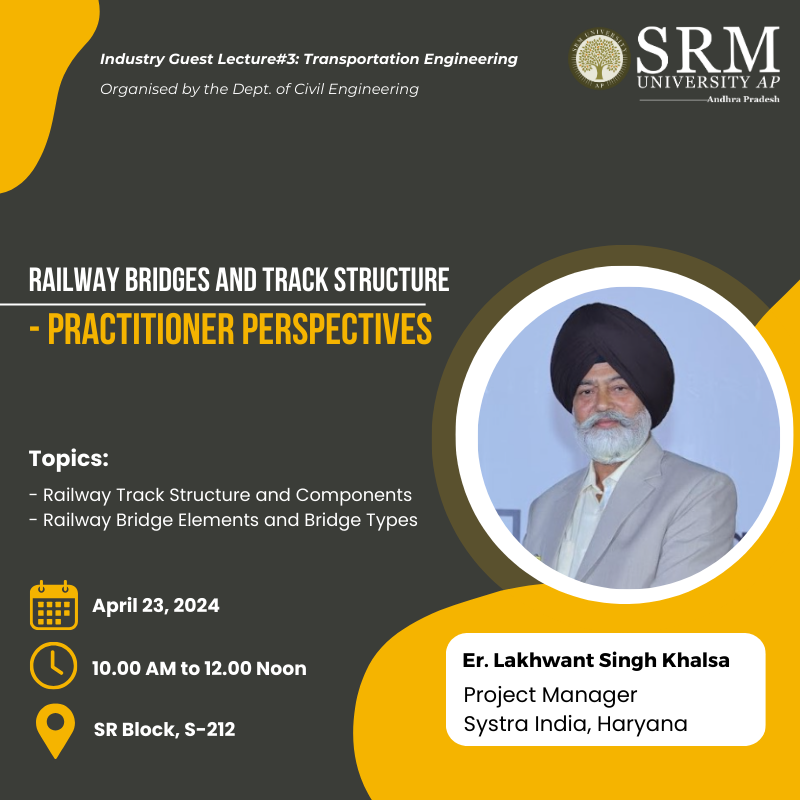
The Department of Civil Engineering is thrilled to host Er. Lakhwant Singh Khalsa for its 3rd Industry Guest Lecture Series. Mr Khalsa, Project Manager at Systra India, Haryana, will deliberate on “Railway Bridges and Track Structure – Practitioner Perspectives”. His lecture will offer deep insights into Railway Track Structure and Components and Railway Bridge Elements and Bridge Types. We Invite all civil engineering students and enthusiasts to join the insightful session on April 23, 2024.
About the Speaker:
Er. Lakhwant Singh Khalsa currently working as a project manager, Systra/PMC for RVNL Vijayawada 3rd line rail project. He has 41 years of rich & extensive experience in railway steel bridge structures, civil bridge works and project management. He is a Life Member of the Institution of Permanent Way Engineers (India)-IPWE and the Indian Institution of Bridge Engineers-IIBE. He holds several prestigious certifications, such as welding inspector from the welding research institute BHEL Trichy and Level II Certification in Non-Destructing Testing for DPT, MPT & UT as per SNT TC IA2006. He is familiar with IS, IRS, EN, and BS Codes, which are relevant to steel and concrete works. Also, he has experience working in hilly terrains in the Himalayan Ranges with critical environmental conditions.
Continue reading → - Empowering the Future of Education: SRMAP at Educators’ Meet October 27, 2023
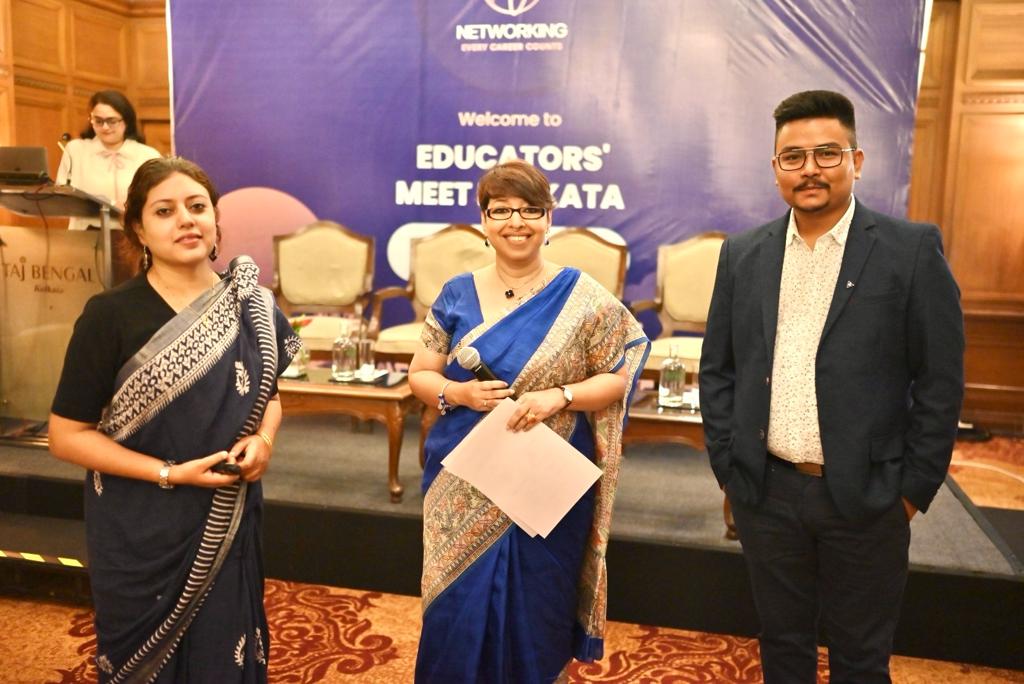
A transformative event in the field of education unfolded at the prestigious Taj Bengal Kolkata on September 30, 2023, as Networking, the event organiser, brought together visionaries, educators, and leaders from renowned institutions for a day of enlightening discussions. The symposium featured an engaging workshop on “Innovative Teaching Methods” and a panel discussion by acclaimed scholars from SRM University-AP and others on “Addressing Inclusivity in Education”.
SRM University-AP shared the stage with Mahindra University Hyderabad as presenters, sharing their insights into the dynamic world of academia. Their presentations provided a roadmap for educators to navigate the evolving landscape of teaching and learning. The event welcomed an illustrious audience, including the principals of some of Kolkata’s most esteemed schools, such as Don Bosco School, National English School, M P Birla Foundation Higher Secondary School, Ashok Hall Girls’ School, Sushila Birla Girls’ School, and Indus Valley World School and many more. This convergence of educational leaders was a testament to the growing need for innovation and inclusivity in the modern education system.
The workshop on Innovative Teaching Methods, led by SRM University-AP, aimed to empower educators with cutting-edge pedagogical tools and approaches. Presenters emphasised the need for adaptive learning, technology integration, and the nurturing of critical thinking skills. Attendees gained practical insights on how to create engaging, student-centered classrooms that inspire curiosity and creativity. The panel discussion on “Addressing Inclusivity in Education” was a powerful forum for introspection and collaboration. Renowned educator Dr Srabani Basu from SRM University-AP led the discourse on fostering an inclusive learning environment. The discussion revolved around strategies for accommodating diverse learning styles, ensuring equitable opportunities for all, and the role of education in shaping empathetic, well-rounded individuals.
A grand canvas was painted with discussions on “Preparing Students for Future Careers.” This event was more than just a meeting; it was a symphony of ideas, a platform for forging meaningful connections, and a springboard to a future of innovation and progress in education. The collaborative energy and innovative spirit that permeated the event offered a glimpse into the future of education. Participants left with a deeper understanding of the transformative power of innovative teaching methods and a collective commitment to make education accessible and inclusive for all. At SRM University-AP, we believe that events like these are pivotal in shaping the future of education. We are committed to embracing innovative teaching methods and fostering inclusivity to prepare our students for the dynamic and ever-evolving careers of the future.
Continue reading → - Explore the Human Mind and Behavior with the BSc Psychology Programme October 20, 2023
Know and Apply! Psychological theory, Research and Practice with BSc Psychology degree
School of Liberal Arts and Social Science, SRM AP
The BSc Psychology programme is a captivating journey into the intricate world of the human mind and human behaviour. It’s a dynamic exploration of what makes us tick, why we behave the way we do, and how we can better understand ourselves and others.
Psychological science and the demand for psychologists in different fields is exponentially growing. The post Covid era has seen acceptance in active improvement in mental health practices and is not limited to treatment of psychological disorders and counselling. It extends to refining various professional domains such as military, sports, forensic sciences, education, organisational behaviour, developmental sciences, health behaviour, nutrition, artificial intelligence, and so on!

At SRM AP, students are nested in a modern and beautiful campus with updated infrastructure in the classrooms and an ever-improving laboratory. They are geared towards future-oriented research, comprehensive multidisciplinary approach in education, and are prepared to complete the course with a superior sense of mastery and achievement as graduates of BSc Psychology degree.
BSc Psychology Programme Details
The BSc Psychology programme is a holistic understanding towards the study of mental processes, emotions, and human behaviour and how it fits in the society, Let’s find out the eligibility of the course, its duration, and the subjects taught throughout the programme.
BSc Psychology Eligibility
To be eligible for a BSc in Psychology, you must meet the following criteria:
- Pass the 10+2 or equivalent exam from a recognised board with a minimum aggregate of 50% marks
- Complete a diploma course after passing class 10
- Be between 17 and 35 years old
- Preferable to have studied Psychology at the +2 level (Not mandatory)
Now, let’s move ahead, looking into the duration of the course.
BSc Psychology Duration
A Bachelor of Science (BSc) in Psychology programme typically has a duration of three years (for BSc degree) to four years (for BSc Psychology Hons .degree). This would enable students to pursue their academic goals at the global platform as well.
The BSc Psychology course covers a variety of subjects, including:
- Foundations of human behaviour
- Biological psychology
- Social psychology
- Developmental psychology
- Organisational behaviour
- Psychological disorders
- Organisational psychology
- Statistics in psychology
- Counselling psychology
- Health psychology
- Forensic Psychology
- Research Methodology
- Statistics for Social Sciences
Why BSc Psychology at SRM University-AP?
The School of Liberal Arts and Social Sciences at SRM University-AP, Andhra Pradesh, offers an undergraduate programme in Psychology. The School boasts of faculty from various reputed Universities having diverse specialisations and a rich record of research publications. The School encourages students to engage in experiential learning and context based learning with an option to explore their interests across disciplines. The students are actively supported in their endeavours to gain internship opportunities and research experience.
Interested? Reach out to us!
The BSc Psychology programme at SRM University-AP, offers an enriching and comprehensive journey into the fascinating realm of psychology. Through a well-rounded curriculum and dedicated faculty, students gain a profound understanding of the human mind and its intricacies. The programme not only equips them with the knowledge and skills to excel in various psychology subfields but also instils a scientific approach to understanding the mind-body connection.
Graduates emerge from this programme well-prepared to embark on diverse career paths in psychology, armed with the confidence and competence to make a meaningful impact on individuals and society. SRM University-AP, provides an ideal platform for aspiring psychologists to flourish and contribute positively to the world of psychology and beyond. Join now and embark on your journey to a rewarding career.
Continue reading →


